Description
Designed solely for thrusting against an armored opponent, this dagger is very stoutly constructed of solid steel, with thick unmarked 10 1/4” diamond-section blade with long rectangular ricasso. The guard is forged in two pieces in a cog wheel shape, with a down-turned lobe extension serving as a belt hook. Tapering octagonal grip with cross hatching and decorative turned top, bottom, and central features. The 2” diameter pommel disc is forged in two pieces and features a decorative flower head washer at the blade peen. Never been apart and blade with moderate pitting, the entire piece with a dark gunmetal gray patina. Shows lamination and slight forging flaws. Similar examples illustrated in AEuropaische Hieb-und Stichwaffen@, by Muller, Kolling, and Platow (published 1984), page 174. A very rare untouched piece of medieval history, possibly used at the famous Battle of Agincourt.
This style dagger is known as a rondel dagger due to it=s round-shaped guard and pommel, though it can also be classified as a AMisericorde@. The latter name is a French term derived from the Latin Amisericordia@, meaning Aact of mercy@. The intent of such daggers was to dispatch a seriously wounded knight and end his suffering. Such daggers were known to have been used at the famous Battle of Agincourt in 1415, when a force of English knights, men-at-arms, and longbowmen under the command of Henry V, defeated a much larger force of French knights, men-at-arms, and crossbowmen. Despite the code of chivalry and the value of ransomed prisoners, Henry ordered the killing of many of the prisoners because he saw the French forming for what he feared would be a renewed attack, which could have caused an uprising among the prisoners. When the French fled the field of battle, he ordered the killing to cease. Despite the overwhelming English victory, the result of the battle had little effect on the continuing Hundred Years War, which was ultimately won by the French. Henry returned to England the following month, but the French nobility and military were decimated, with entire noble families being wiped out.

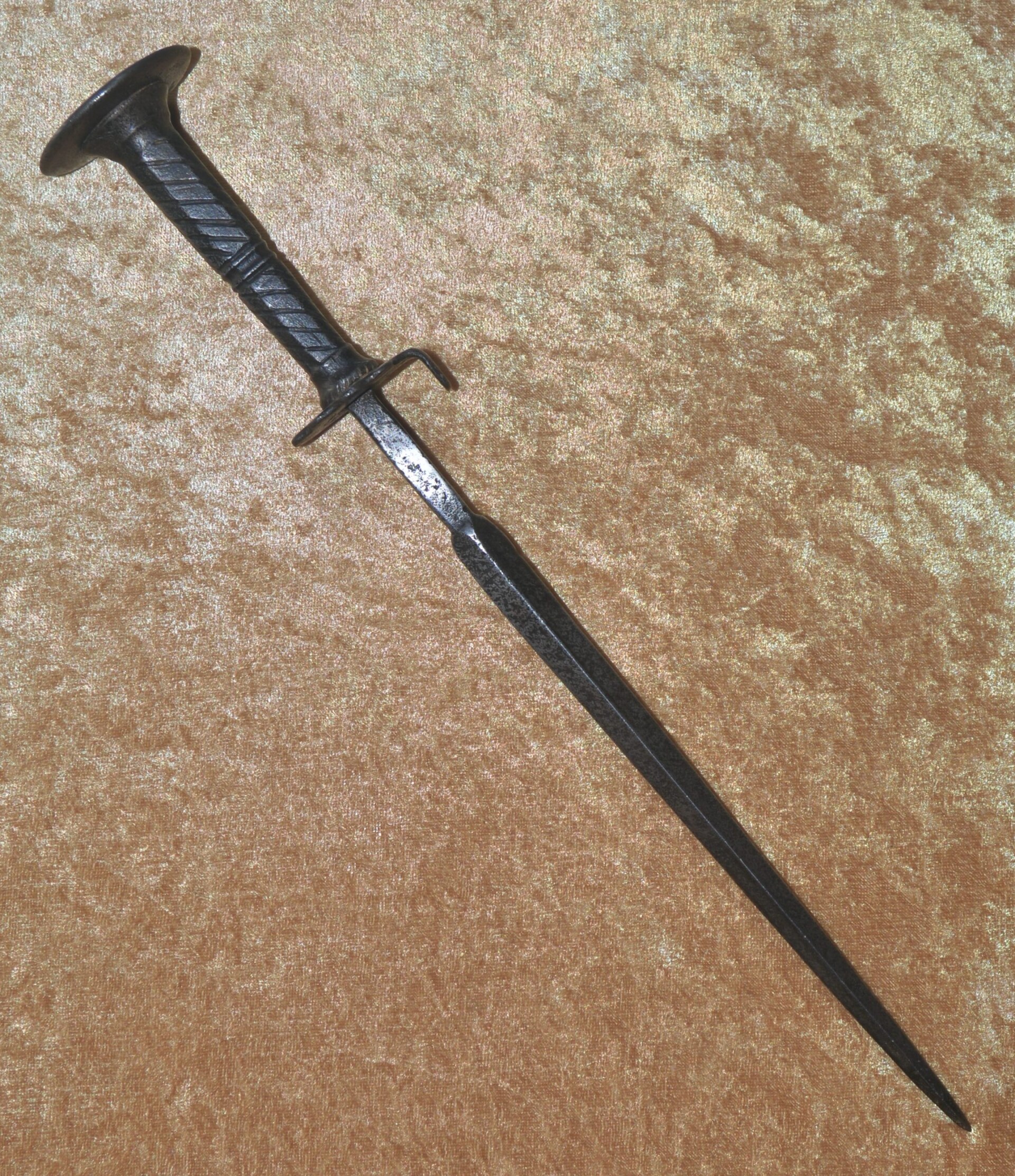
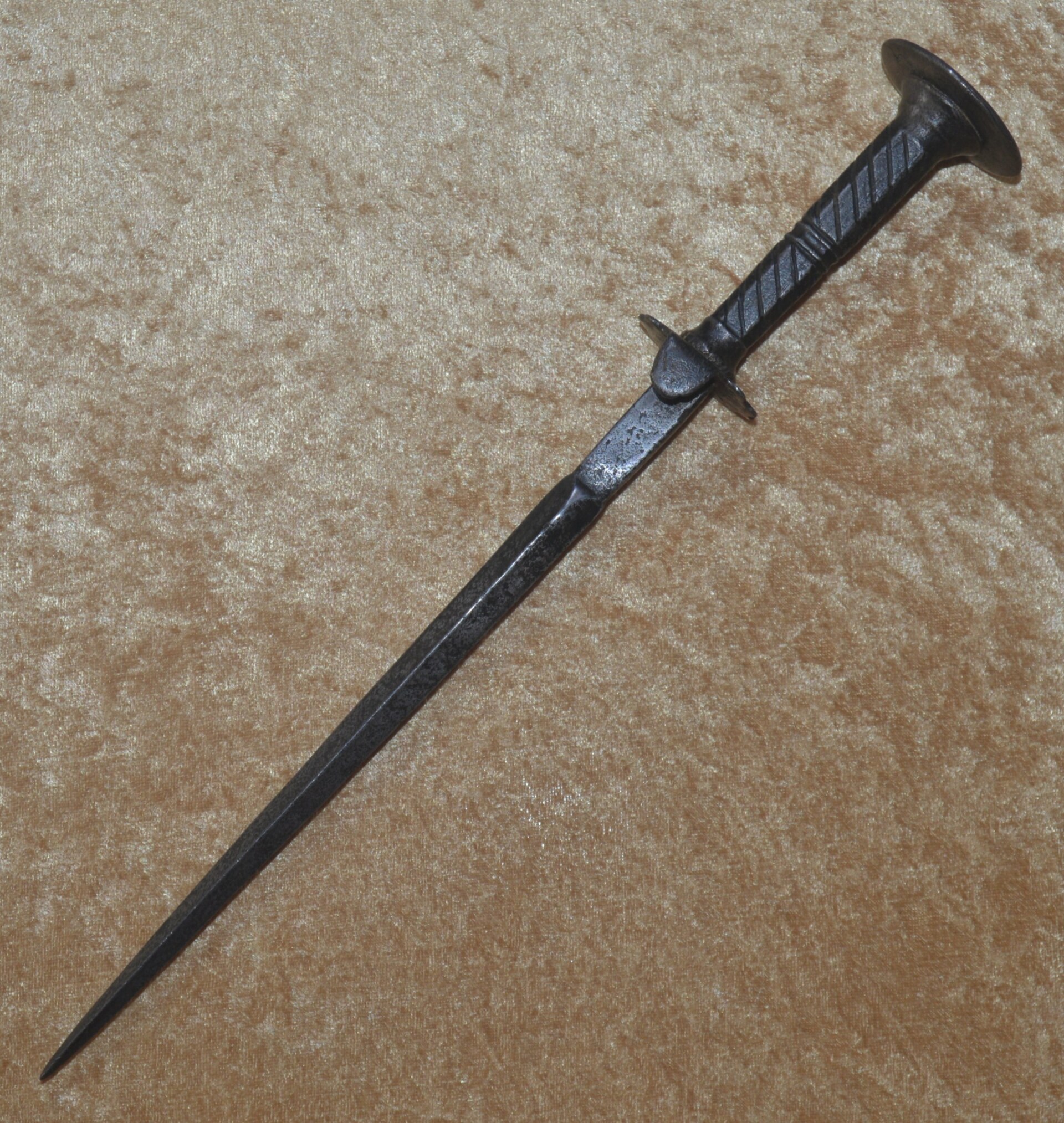
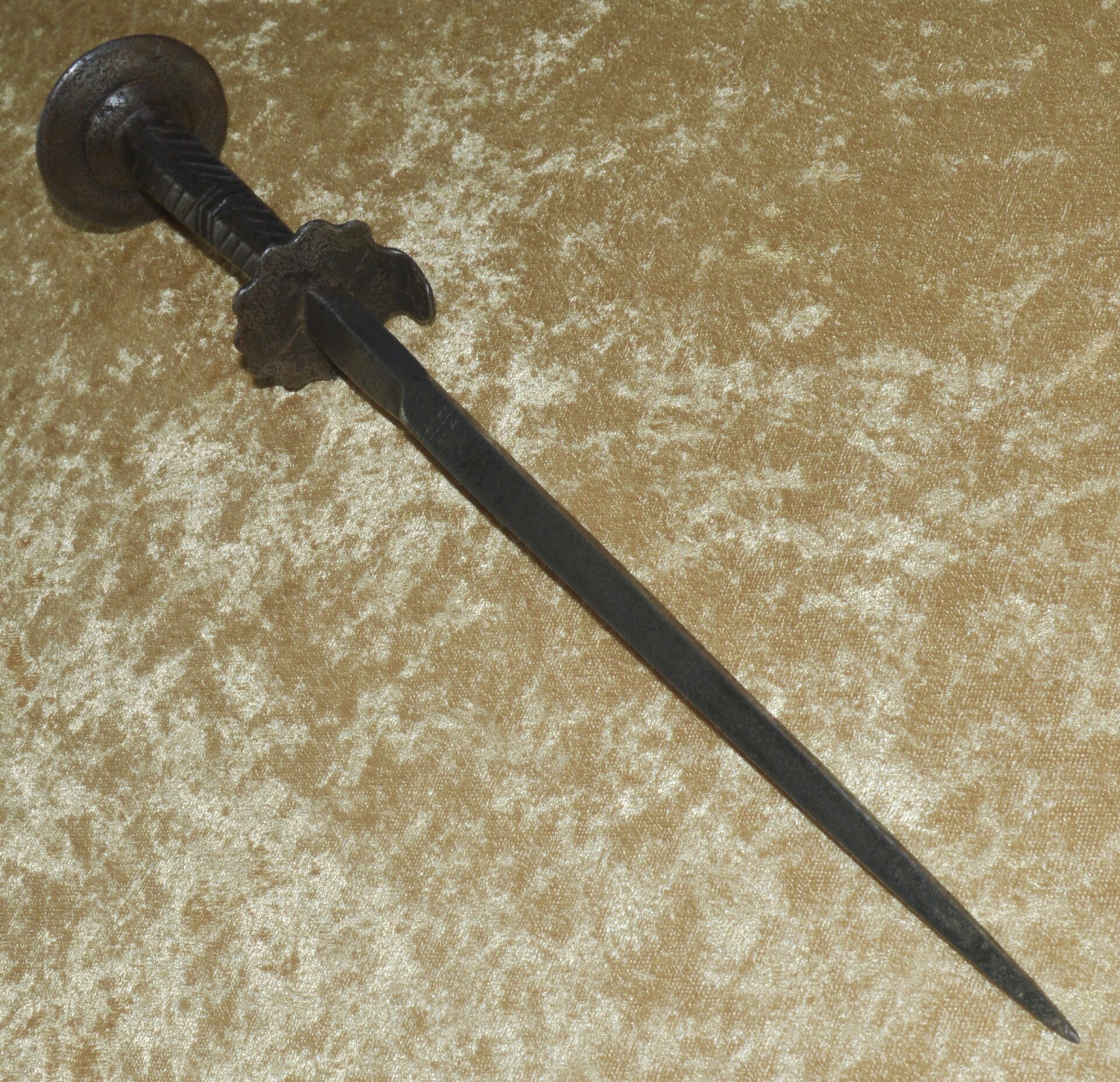
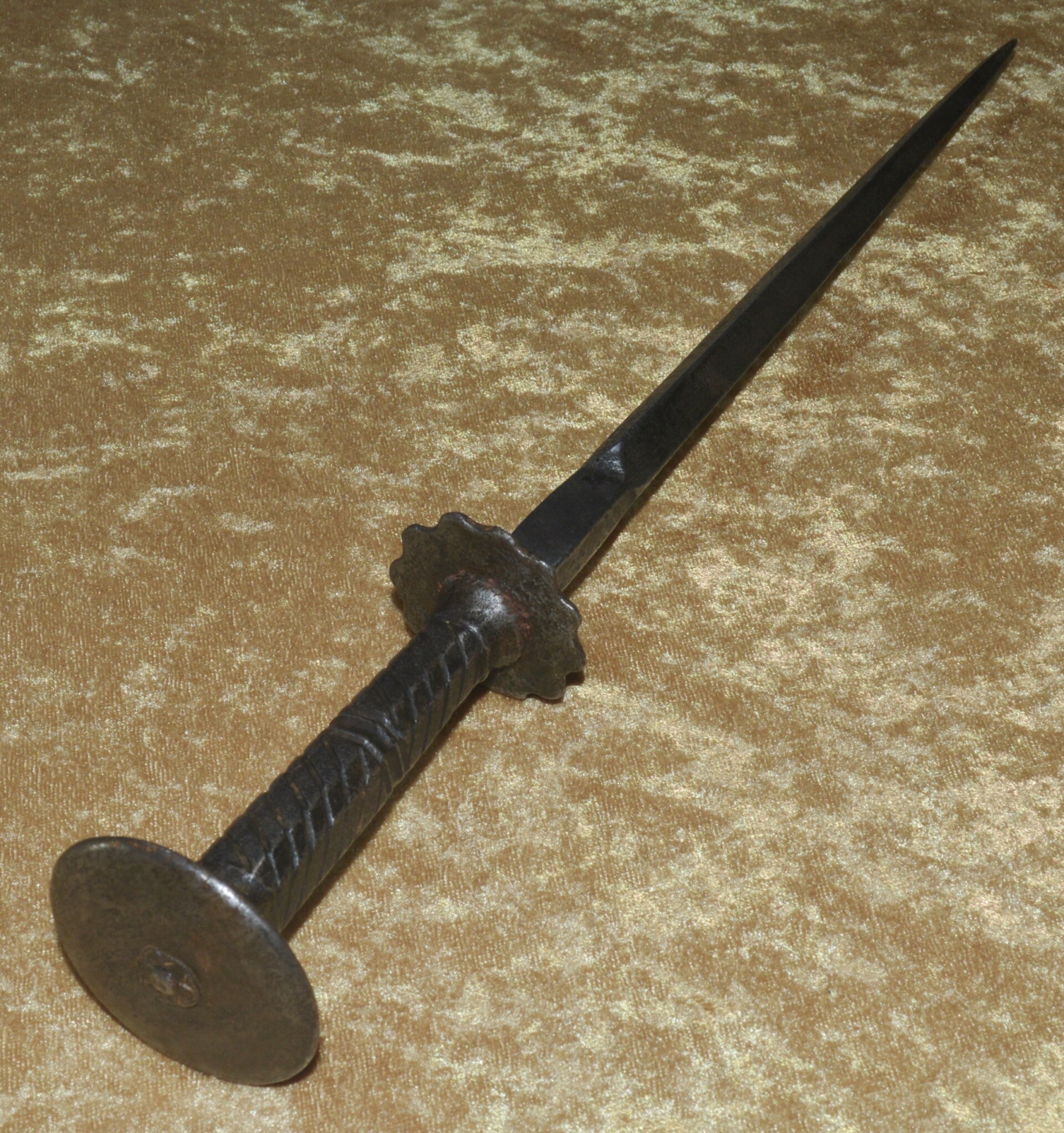
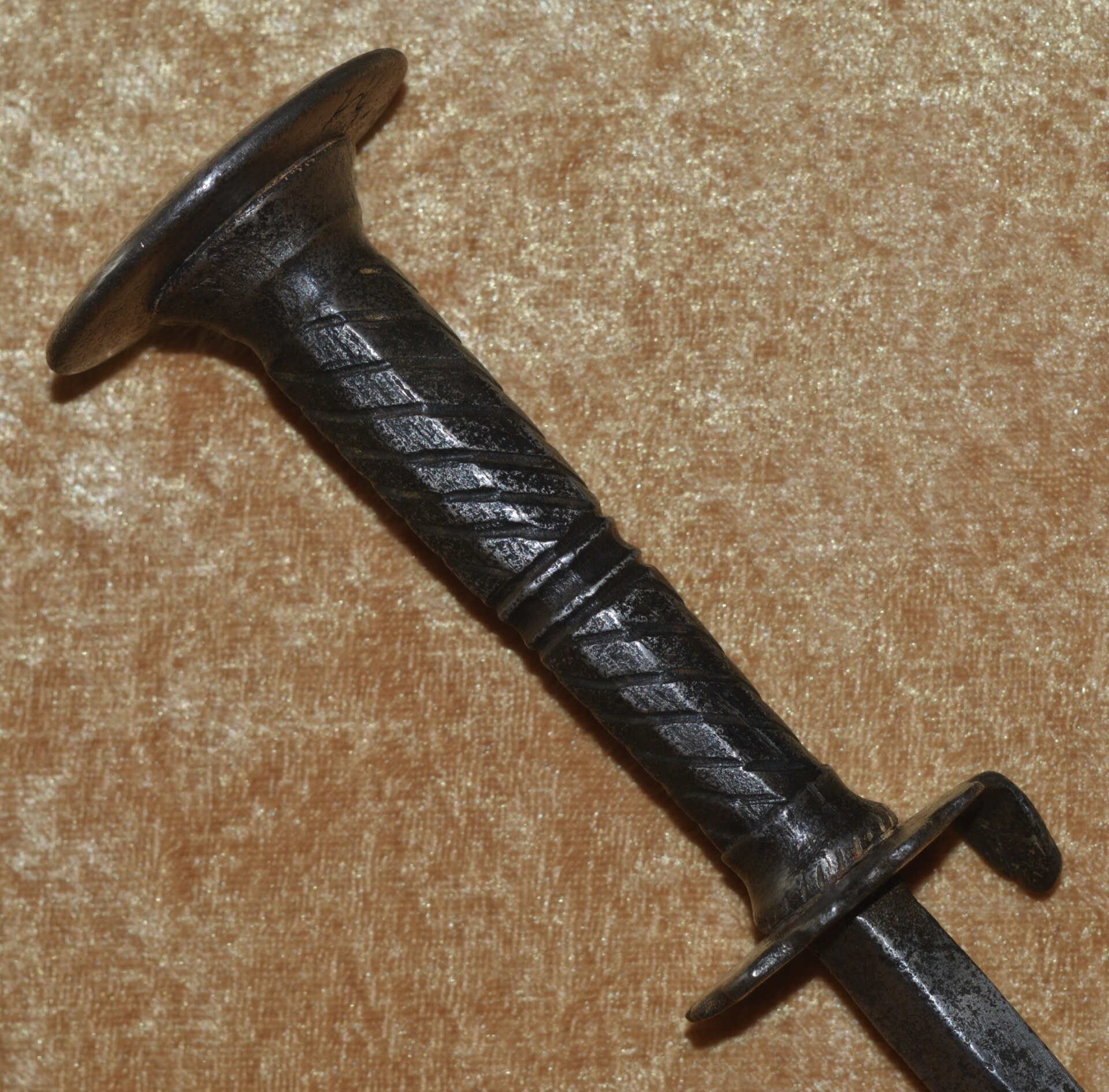
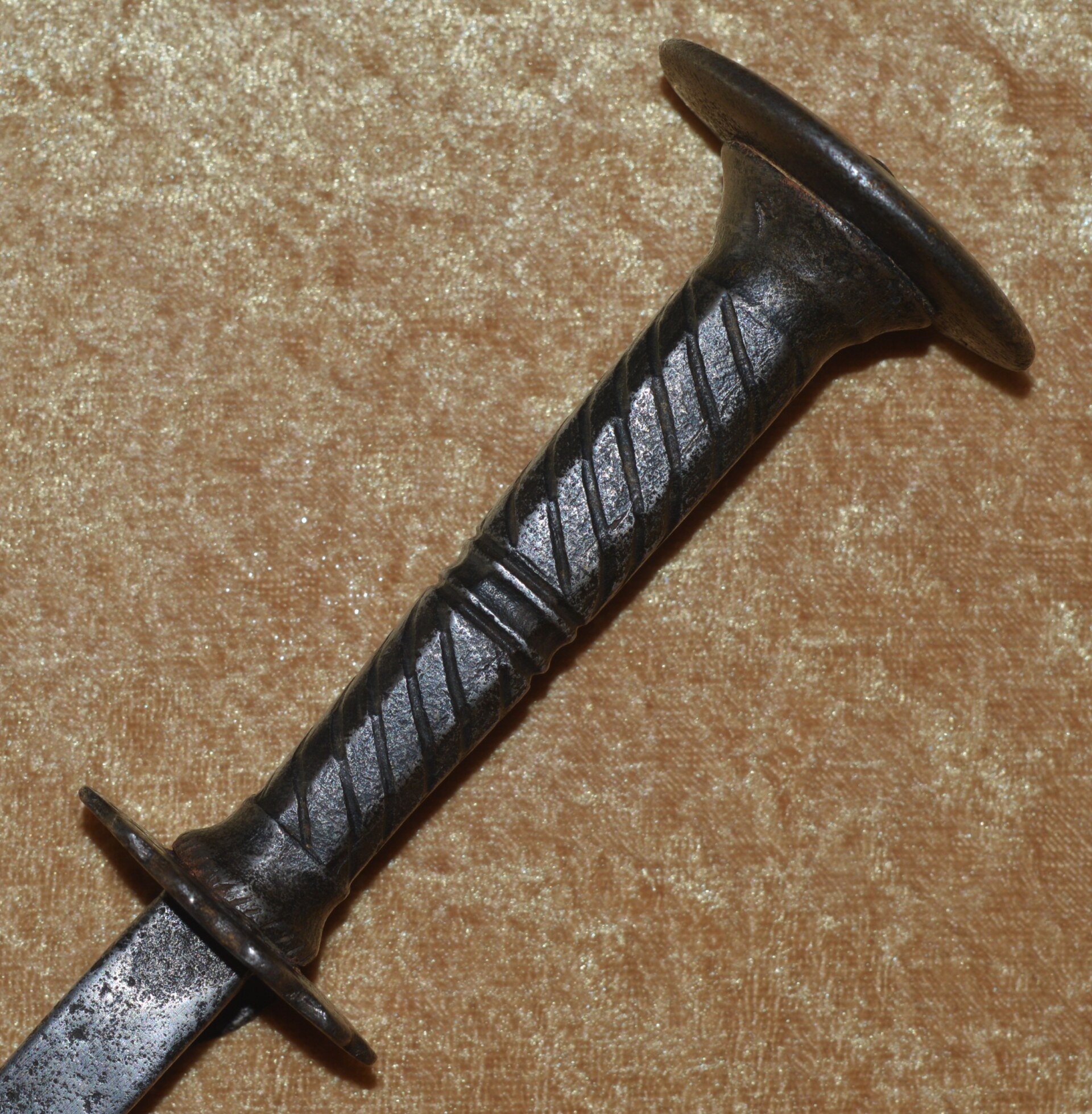

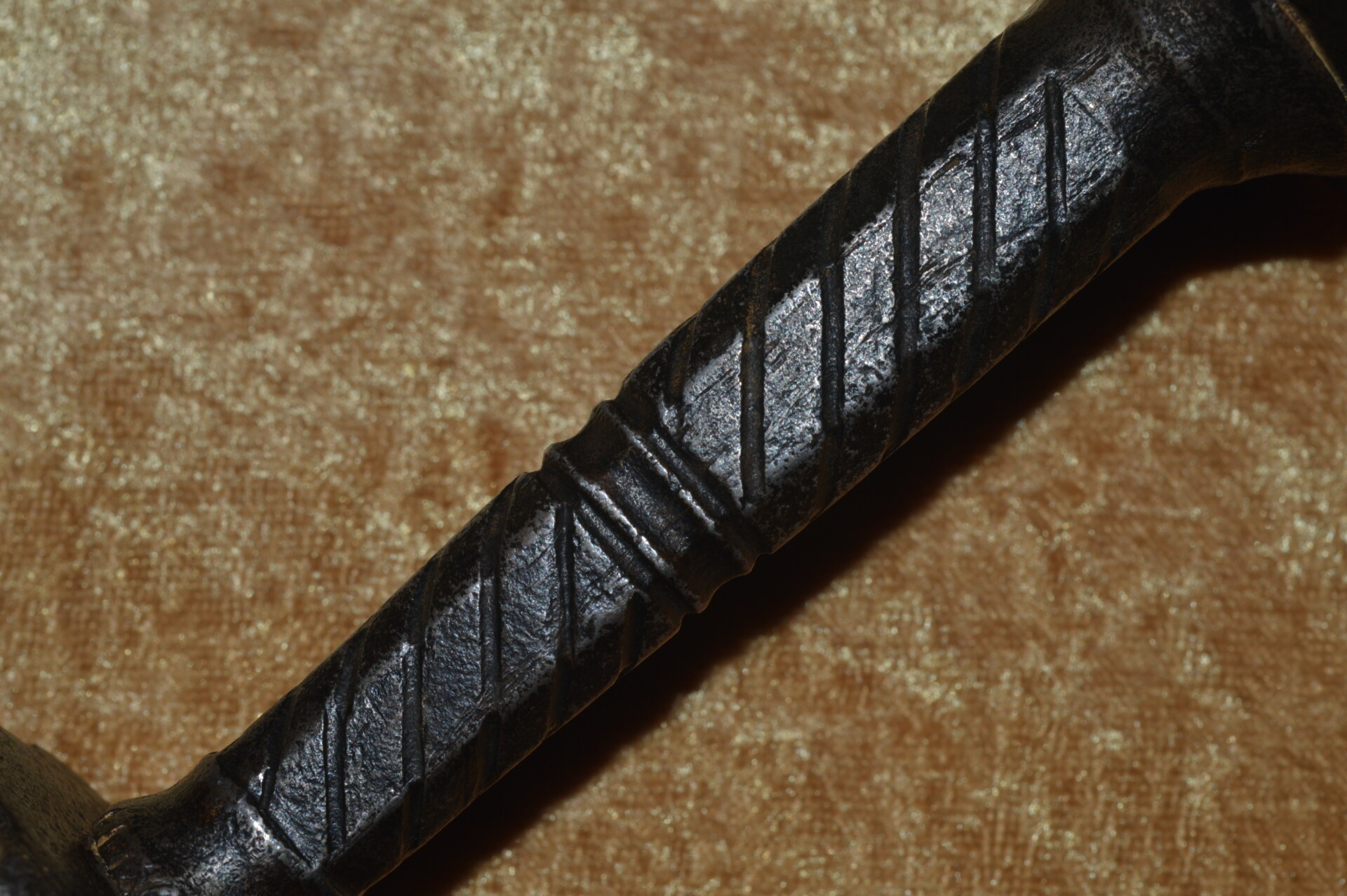
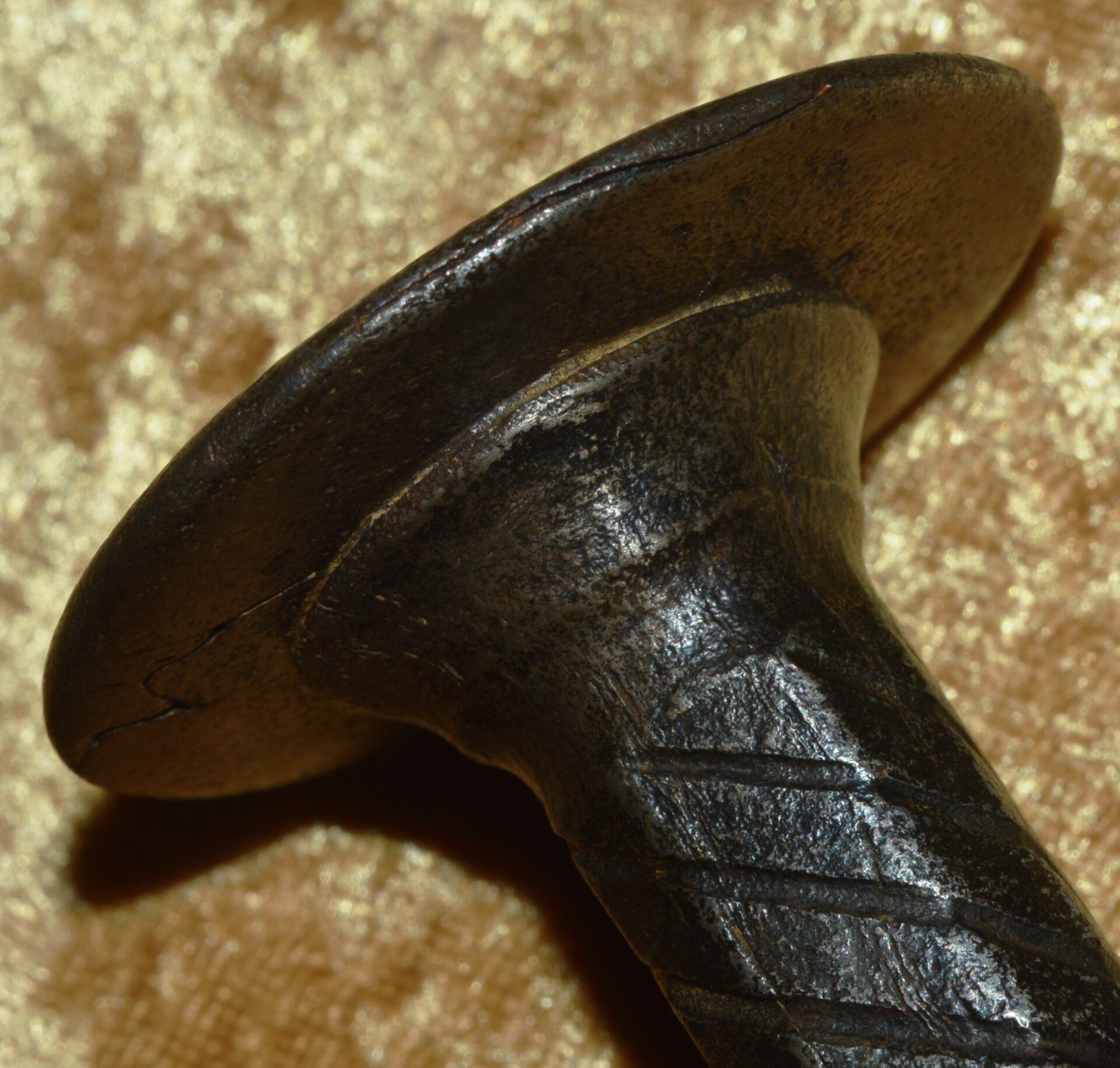
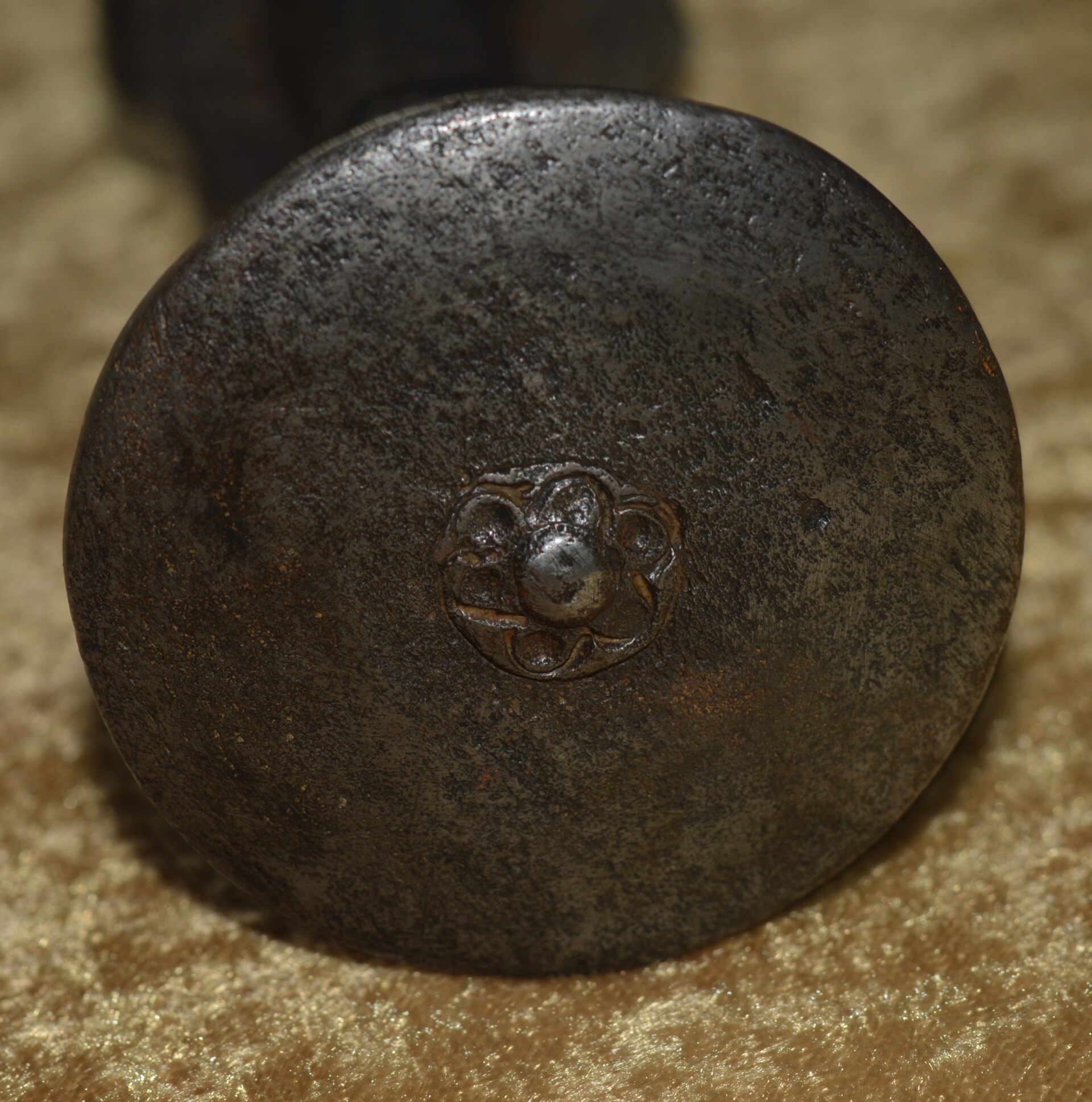
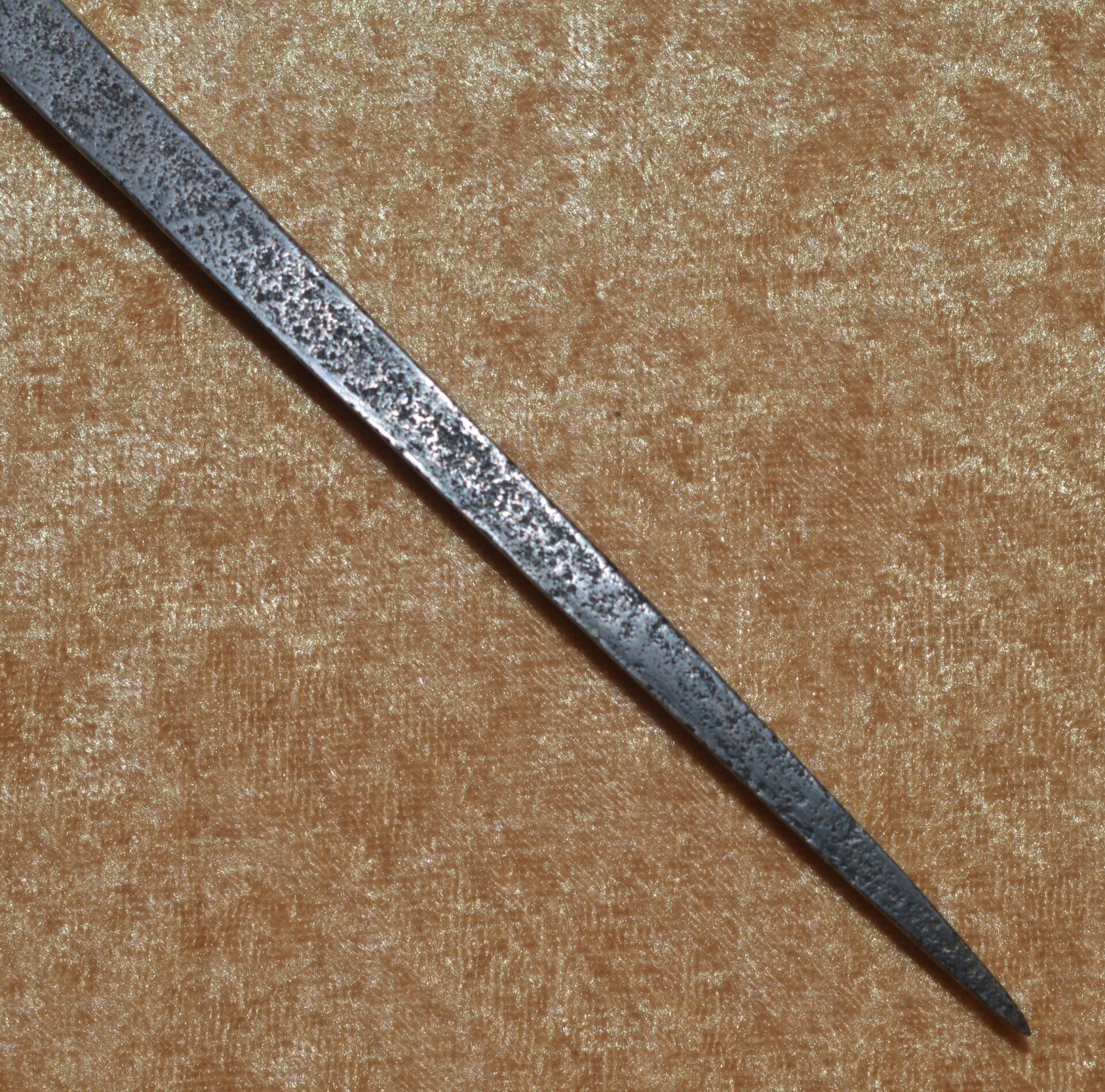
 WWII Nazi Army Enlisted Dress Sword
WWII Nazi Army Enlisted Dress Sword 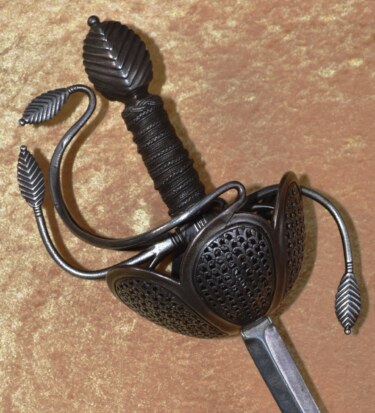 Exceptional Published Italian Rapier, ca. 1630
Exceptional Published Italian Rapier, ca. 1630  Fine German Silver Hilt Smallsword, ca. 1750
Fine German Silver Hilt Smallsword, ca. 1750 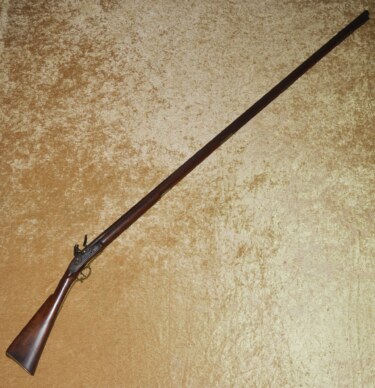 New England Flintlock Fowler, ca. 1800
New England Flintlock Fowler, ca. 1800